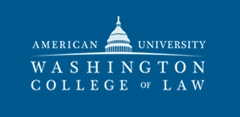Abstract
The rate of foreign direct investment made by sovereign wealth funds has increased significantly during the past decade. Various concerns raised by host states— especially those located in the developed world—regarding the purposes and objectives of foreign investments made by these funds have led these states to take measures to protect themselves. Countries such as Canada, Germany, and the United States have issued new laws to address these concerns. Due to the broad discretion and flexibility that these laws grant to the governments of the host states, allegations of mistreatment by investors from the Global South, including sovereign wealth funds, are likely to be made. Subsequently, investor-state arbitration is likely to be pursued by injured sovereign investors before various forums. This article argues that the methodology employed by the Ceskoslovenska Obchodni Banka, A.S., tribunal is inadequate for a number of reasons: first, the Nature of Acts Test employed by the tribunal can lead to undesirable outcomes; second, states may attempt to disguise their political objectives through a separate entity that employs the same mechanisms and tools as private investors; and third, the inherent conundrum that is made clear by the mixture of the sovereign and private characteristics of sovereign wealth funds compels a broad approach that takes into consideration the specific characteristics of the particular sovereign wealth fund involved in a given dispute. This article further argues that reference to the general principle of state attribution and laws of sovereign immunity can help future International Centre for Settlement of Investment Disputes (“ICSID”) tribunals shed further light on the true nature of the particular sovereign wealth fund involved in a dispute. Finally, it addresses the order and priority with which these tribunals should address ICSID’s jurisdictional requirements (as set forth in the Convention on the Settlement of Investment Disputes between States and Nationals of Other States) and the jurisdictional requirements incorporated in the relevant international investment agreement. On the basis of this discussion and analysis, this article emphasizes the crucial need for avoiding generalizations about sovereign wealth funds and, instead, investigating the specific characteristics of the particular sovereign wealth funds involved in each case to arrive at a fair and reasonable decision on the question of sovereign wealth funds’ standing in arbitration with ICSID.
